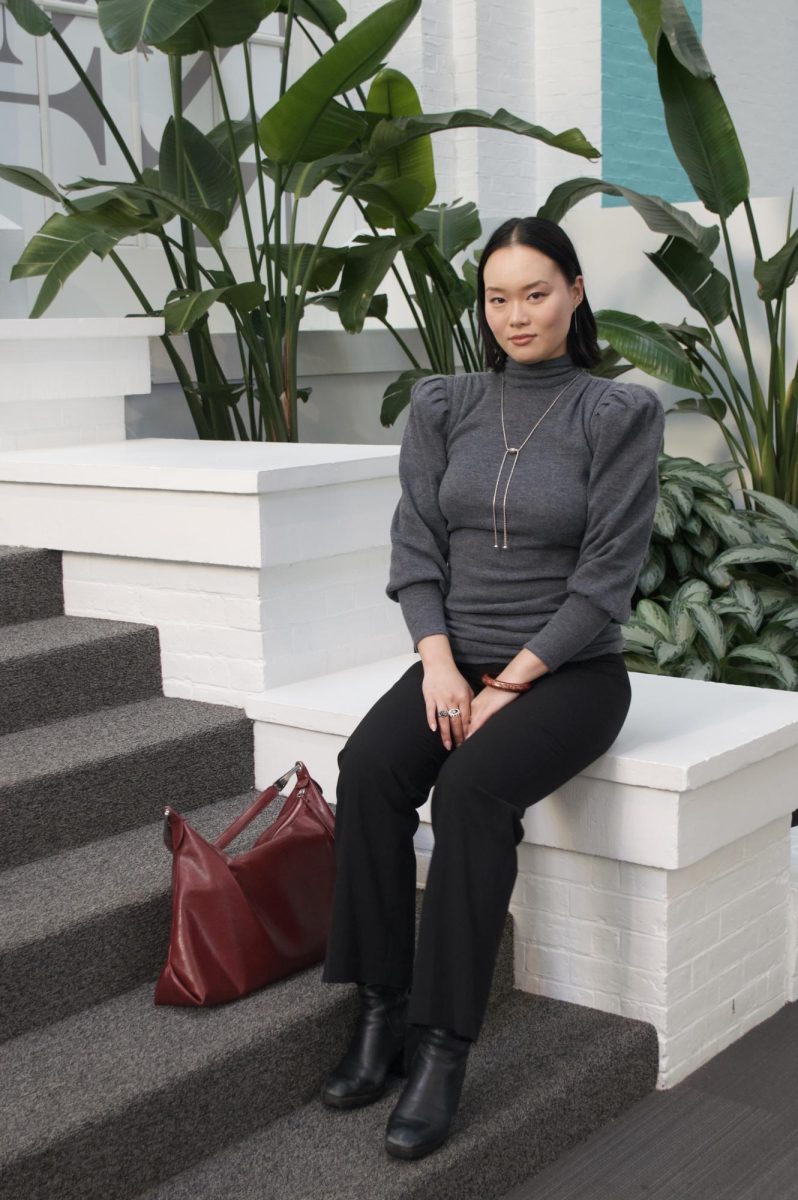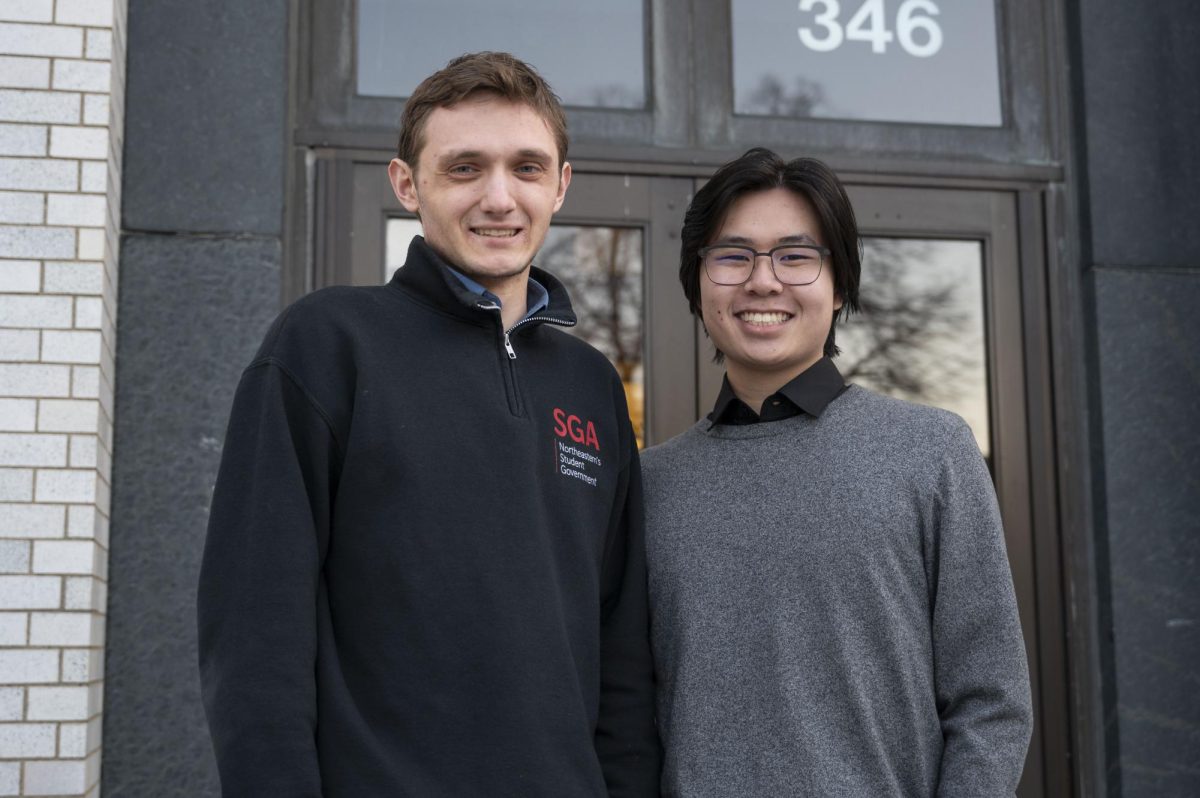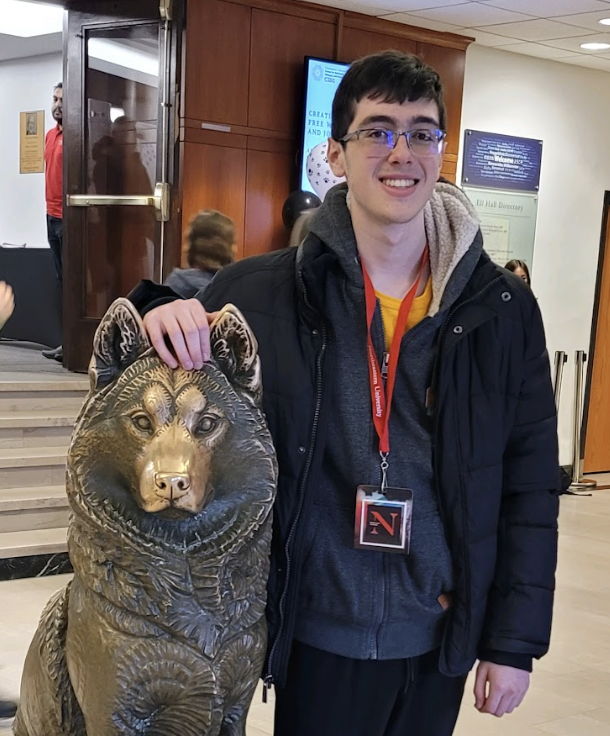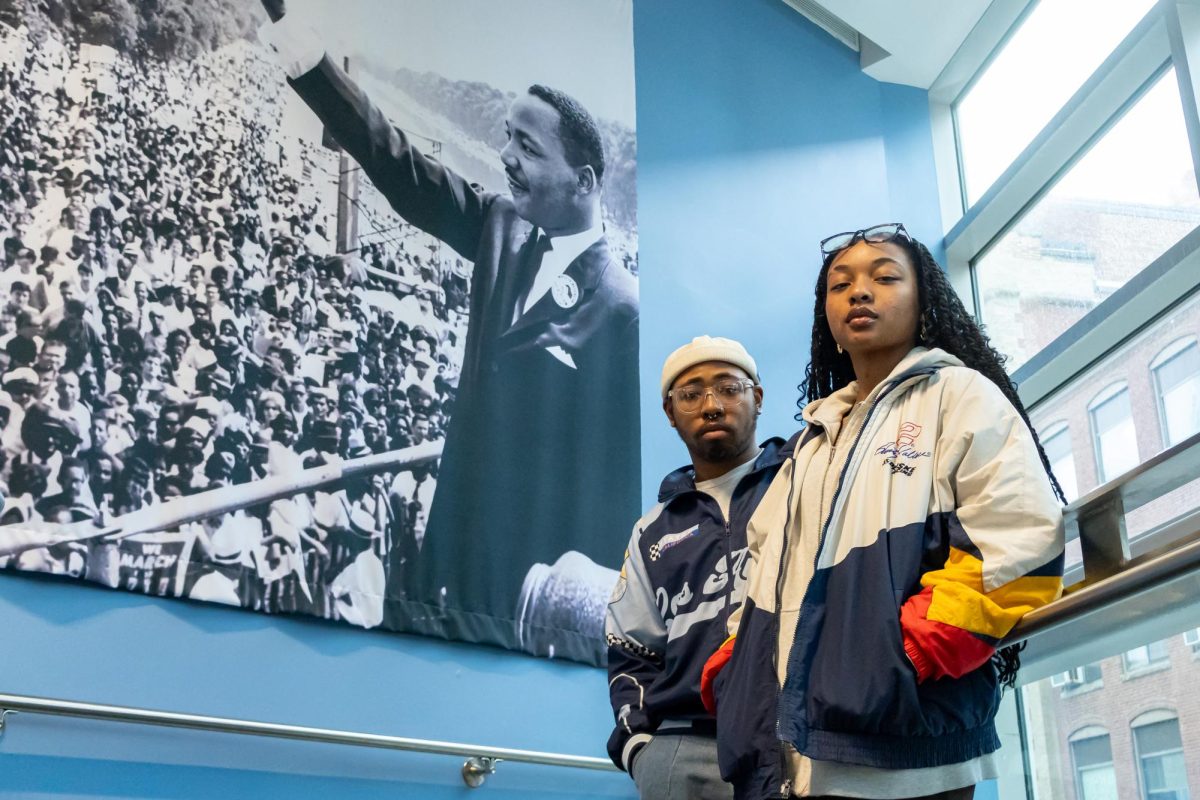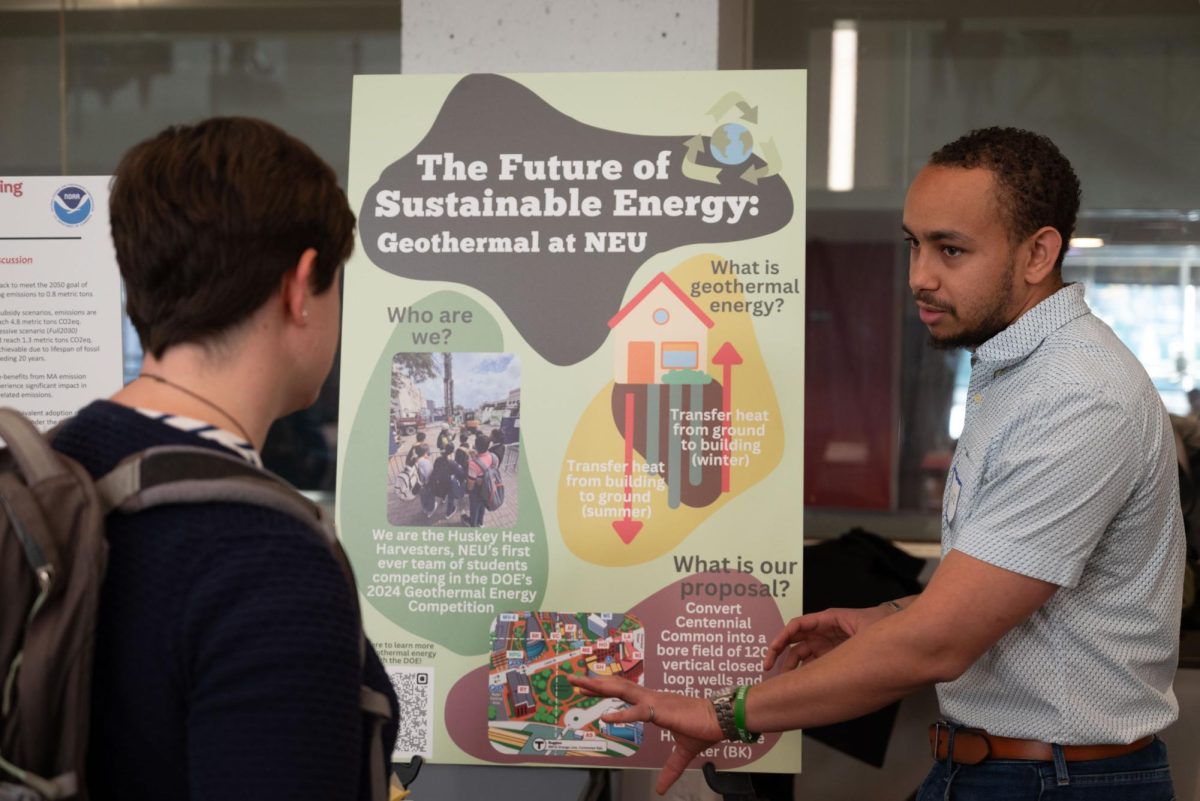By Melissa Werthmann, News Staff
Members of the Student Government Association (SGA) shared various grievances with Vice Provost for Undergraduate Education Bruce Ronkin during Monday’s Senate meeting, but did not receive any specific details as to when those problems will be solved.
SGA members shared issues regarding online classes, overcrowding and Northeastern’s Blackboard system with Ronkin, who said he wanted to speak to the SGA members “to learn what’s going on in your minds because we need to work together here at Northeastern.” He explained that his job is to work with associate deans, the registrar and the co-op and study abroad programs, helping to “connect the dots” between them.
Ronkin served as chair of the music department from 1998 to 2002 and was the director of the music industry program from 1991 to 2002.
“Some days I think those were my most fun days, working in the music department and making music,” he said.
Ronkin listed some upcoming university improvements including a wait list feature to the class registration system. This would enable students to put their names on a list if a class is full, instead of being denied entry and having to check back repeatedly, but there is no date set for when the feature will be available.
Overcrowding at the university has become a focus of the administration and students alike.
“There is a very dire space issue,” said Peter Petrin, an SGA Senator from the College of Social Sciences and Humanities. “I think that’s something that needs to be addressed and will be addressed.”
Ronkin spoke about this issue, mentioning steps the university has taken to prevent it. He said one way the university tried to alleviate crowding was through the new swipe system in the library. The system, implemented at the beginning of this semester, requires students to swipe a valid student ID in order to enter the library and doesn’t allow members of the public to enter without special approval.
“I hope that’s working well,” he said. “The whole idea is that we want the space to be used by the students here at Northeastern.”
Ronkin addressed the Institutional Master Plan (IMP), a document that the City of Boston requires universities to complete every 10 years, detailing plans for the future. Northeastern’s last IMP was released in 2000. The city granted the university an extension last year past the original due date of July 13, 2010, allowing it to file the master plan by the end of this year.
“The university is a little late in doing it, but they’re doing it now,” Ronkin said.
He explained that the last plan focused on a need for residence halls, and allowed for the construction of International Village and the possibility of a dorm within the YMCA building. The new plan will tackle Northeastern’s lack of academic space.
What you’re going to see coming out of this is classroom space, lab space, study space,” he said. “It’s going to happen.”
Petrin, a junior political science major, said the need for more academic space is apparent especially since the university got rid of activities period. “They just didn’t have enough space for all of the classes,” he said.
The Office of the Provost is also working to make more classes offered online, renovating rooms and adding new technology, said Ronkin. Some SGA members raised the issue that without available resources like office hours, some online classes have been “sub-par.”
Petrin, was forced to take online classes and said he wished he had a choice in the matter. He said he understands university officials are trying to cut costs and make the minor available to more students, but that it takes away students’ ability to choose what learning style works for them.
“That change was made without really talking to students about what was best first,” Petrin said.
Ronkin said he will address these issues, but since the culture at Northeastern is one full of double majors, multiple minors and multidisciplinary experiences, there is a place for online classes.
“The real key is you have to do online well,” Ronkin said. “That’s the way the world is going.”
SGA members said many professors spend a large amount of class time figuring out how to use technology. Ronkin agreed if there is equipment in a classroom, professors should know how to use it.
“The most efficient way is to just be a nice helpful classmate,” he said. “If we help each other, things move along. My point is that it’s not as easy as it sounds to teach 1,000 faculty members how to use one specific piece of equipment, but I will work on it.”
Lastly, Ronkin addressed the problem that many professors do not post grades to Blackboard. He said a feature that will transfer grades from Blackboard to the registrar is on the way, but did not set a date.
“We can only change things that are bothering you if you tell us what they are,” Ronkin said. “You’re in a unique position to represent other students. Get that message to me somehow. The sooner we know about it the quicker we can get to work on it.”



